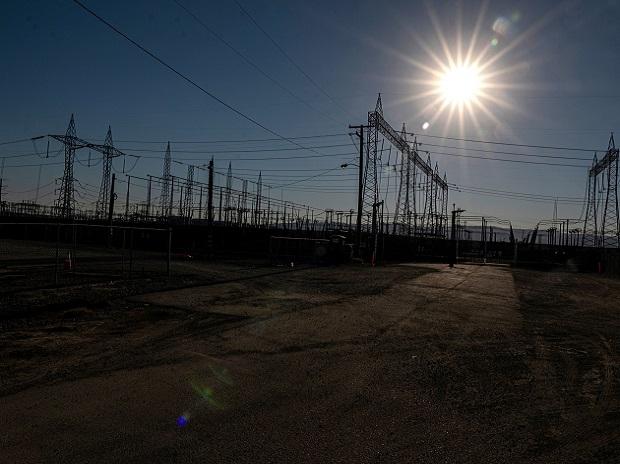[ad_1]
Pakistan’s national grid suffered a major breakdown on Monday, the power ministry said, leaving nearly 220 million people without electricity for the second time in three months and highlighting the infrastructural weakness of this heavily indebted nation.
Energy Minister Khurrum Dastagir said the outage was caused by a large voltage surge in the south of the grid, which affected the entire network.
Supplies were being partially restored from north to the south, he added, nearly six hours after factories, hospitals and schools reported outages. The grid should be fully functioning by 10 pm local time, Dastagir said, adding: “We are trying our utmost to achieve restoration before that.”
A senior ministry official blamed this outage, and the frequent blackouts on its ageing grid. “Generators are too far from the load centres and transmission lines are too long and insufficient. “Pakistan’s grid desperately needs an upgrade that the government, which has lurched from one IMF bail-out to the next, says it can ill afford.
Pakistan has enough installed power capacity to meet demand, but it lacks resources to run its oil-and-gas powered plants and the sector is so heavily in debt that it cannot afford to invest in infrastructure and power lines.
“We have been adding capacity, but we have been doing so without improving transmission infrastructure,” Fahad Rauf, head of research at Karachi-based brokerage Ismail Iqbal Industries, said.
China has invested heavily in Pakistan’s power sector as part of a $60 billion infrastructure scheme that feeds into Beijing’s “Belt and Road” initiative to develop land and sea trade routes in Asia and beyond. The outage affected swathes of the country.
In Peshawar, a city of more than 2.3 million people, some residents said they had no drinking water because their pumps were powered by electricity.
Telecom companies and several hospitals said they had switched to back-up generators, but disruptions remained.
“I am facing a lot of problems because of the power outage,” said Karachi resident Mohammad Khurram, who was accompanying his sick mother-in-law at a city hospital. “I have to keep bringing her in and out of the building because the x-ray machines and other testing units are affected.”
(Only the headline and picture of this report may have been reworked by the Business Standard staff; the rest of the content is auto-generated from a syndicated feed.)
[ad_2]
Source link



